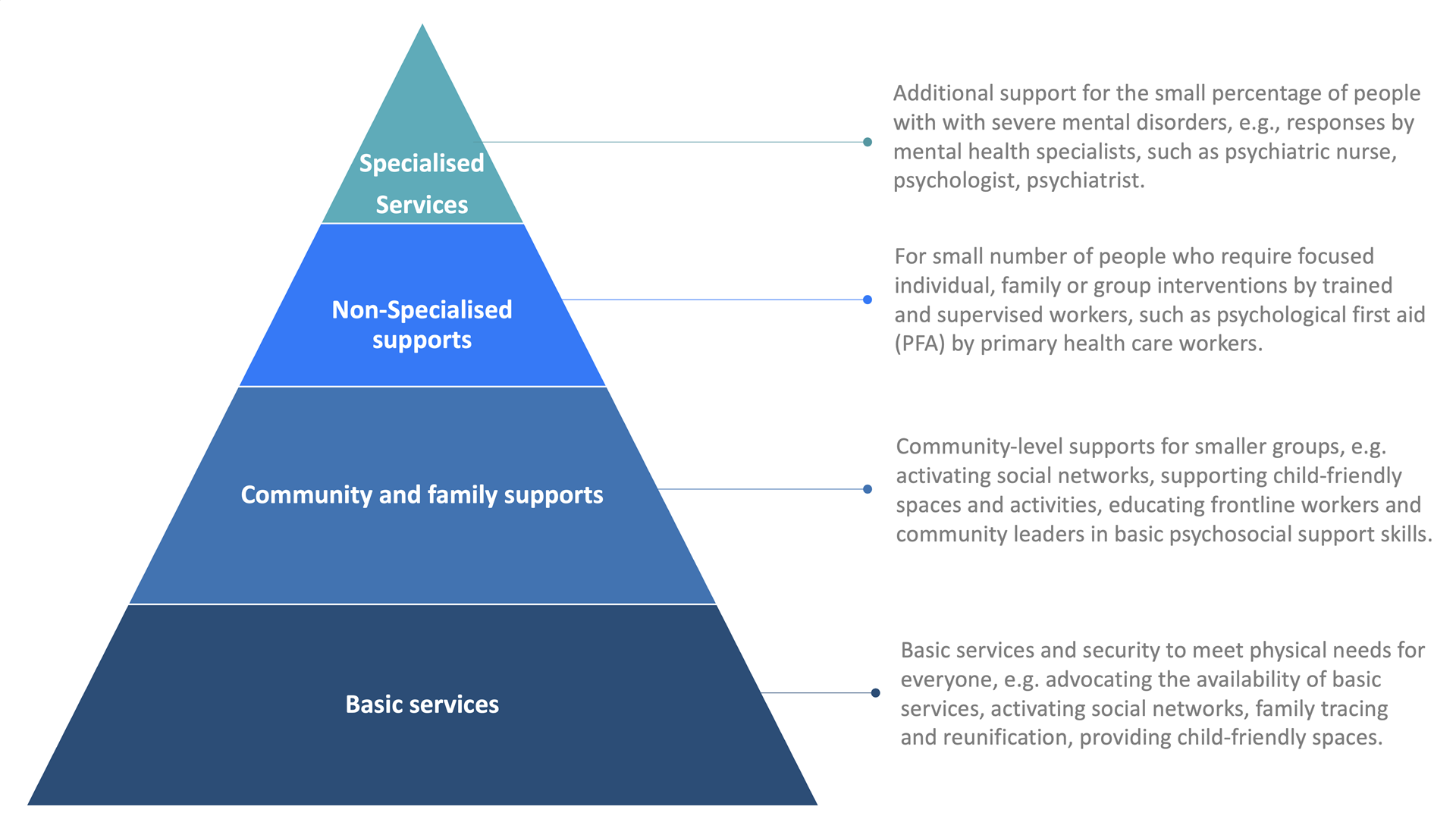- Home/
- Our Work/
- Health Emergencies/
- Knowledge hub for HEDRM/
- Mental Health & Psychosocial Support (MHPSS)/
- MHPSS Interventions

Mental Health and Psychosocial Support
Interventions
Health emergencies and disasters increase the risk of mental health and psychosocial problems. Timely Mental Health and Psychosocial Support (MHPSS) can reduce these risks and promote recovery and resilience. WHO co-chairs the Inter-Agency Standing Committee (IASC) Reference Group on MHPSS in Emergency Settings, which advises and supports organizations working in emergencies and to country-level MHPSS technical working groups across over 50 countries.
Acknowledging the strong need for MHPSS interventions in all phases of emergencies – preparedness, prevention, response and recovery – the IASC Reference Group on MHPSS developed the IASC Guidelines for MHPSS in Emergency Settings in 2007. They aim to enable humanitarian actors and communities to plan, establish and implement a set of minimum multi-sectoral responses to protect and improve mental health and psychosocial well-being as soon as possible in an emergency.
Effective MHPSS interventions, including early detection, should be delivered in the right time and also for the right period of time. Despite mounting evidence of the need to address both acute and long-term mental health impact, challenges remain to clarify the suitable timeframe for various MHPSS interventions. Nevertheless, current evidence underscores the importance of MHPSS in every disaster phase, from preparedness and prevention to response and recovery.
Preparedness and Prevention Phase
Emergencies often increase the risk of mental health problems, highlighting the need for MHPSS in the preparedness and prevention phase to mitigate potential impacts. Disaster risk management is increasingly prioritising preventative and proactive actions to mitigate mental health risks before emergencies arise. MHPSS has not been sufficiently incorporated into these early stages, but, recent initiatives are aiming to address this gap through the development of MHPSS guidelines and training resources.
Relevant Tools
Technical Note Linking DRR and MHPSS: Practical Tools, Approaches and Case Studies
Read more
Acute/Immediate Response Phase
MHPSS Intervention Pyramid
The IASC’s MHPSS intervention pyramid (2007) categorises support for MHPSS into four complementary layers emphasizing the simultaneous availability of all services (see Figure 1). It is important to tailor interventions to the specific needs of target populations for maximum impact.

Figure 1. MHPSS Intervention Pyramid
Relevant Tools
MHPSS Minimum Services Package
Read more
Recovery and Rebuilding / After Acute Response Phase
The mental health impacts of a major crisis can be long lasting. MHPSS interventions in this phase should offer practical support and relevant information tailored to the local context and resources.
The “Building Back Better“ concept emphases the use of emergencies as opportunities to improve health care systems, leveraging the surge of aid, and heightened political awareness to reform mental health care sustainably. WHO’s report Building Back Better: Sustainable mental health care after emergencies describes how some countries have capitalized on this momentum to transform mental health systems for their populations.
This approach involves enhancing community self-help, social support, and involving marginalized groups in problem-solving and recovery activities.
